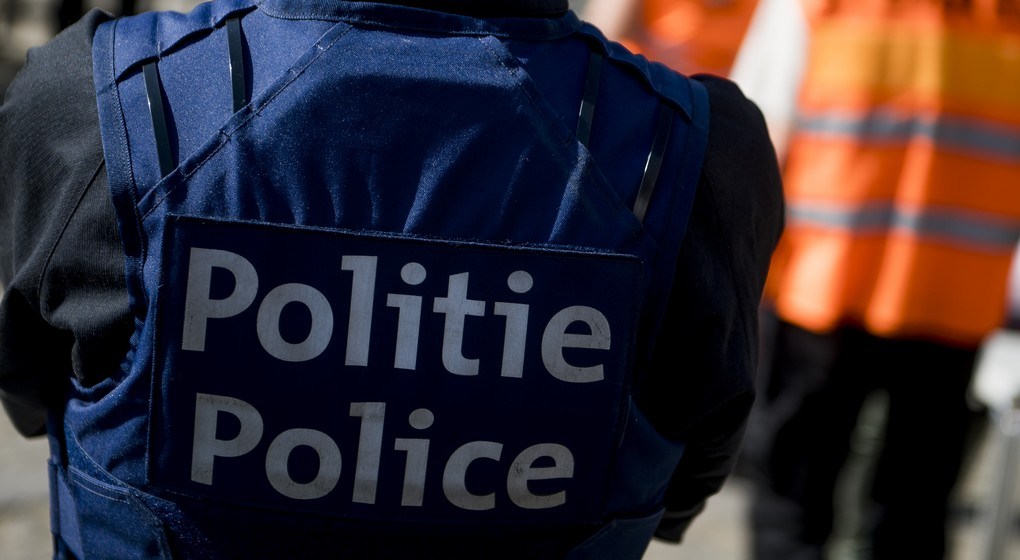Four different measures to increase police transparency are being proposed for the Brussels region this month, including the use of bodycams in every interaction with civilians, cameras in every cell, and the requirement that all identity checks by the police are registered.
“At the moment, a meeting between the police and the inhabitants of Brussels too often ends in escalation, on one or both sides,” says MP Juan Benjumea-Moreno, who together with MP Hicham Talhi, is leading the proposal.
“By ensuring transparency and objective recording of inspections and facts, we avoid speculation about who was in the wrong and this can be objectively established. Both the people of Brussels and the police benefit from this.”
Related News
The proposal’s four main objectives involve increasing transparency and setting up opportunities for citizens to communicate informally with police about various concerns.
Bodycams
“In Belgium, we have been discussing bodycams for a long time,” Benjumea-Moreno told The Brussels Times. “But we see the experiences in other countries where there’s not a good framework in place and so police use them very selectively, generally only when they feel unsafe or think that their lives are in danger, rather than every time they interact with a citizen.”
In these cases, Benjumea-Moreno said, the footage ends up being incomplete because the bodycams weren’t activated until it was too late to see the full context.
“Within the Brussels-North police zone, a protocol has been introduced whereby officers have to switch on the bodycam for every contact with a citizen. We want that kind of practice everywhere because we know that the images are often incomplete because the police officer starts recording too late.”
Cameras in cells
Following the death of Jozef Chovanec after a controversial arrest in Charleroi Airport, the proposal calls for cameras in every police cell.
“In the Chovanec case, we saw how important that is. But cameras are not everywhere. We want cameras in all places where people are deprived of their freedom,” Benjumea-Moreno said.
That case wasn’t the only one wherein a person died while in police custody. In January, the Brussels prosecutor’s office opened an investigation into the death of Ilyes Abbedou, who was taken into custody on a Monday evening and found dead in his cell the following day, in a police station within the Brussels City-Ixelles zone.
On 9 January, Ibrahima Barrie was arrested and brought to a Brussels police station, where he became ill and later died.
“With cameras you can better monitor what is happening in a cell,” said Benjumea-Moreno.
In addition to cells, the proposal also includes cameras in service vehicles.
"With an objective record of what happened, both the people of Brussels and the police can rest assured that if a mistake is made, the necessary legal steps can be taken," Talhi said.
Identification checks
The third part of the proposal calls for police to register every identity check they make, which aligns with a separate bill aimed at combating racial profiling.
“There have been complaints from people who say they are being disproportionately targeted. This is a way of objectivising the debate,” Benjumea-Moreno said.
He explained that in other countries, like Spain and Scotland, examining data regarding the types of people who are most often stopped and asked to show identification revealed biases related to race and age that did not align with statistical evidence.
For example, young people were stopped more often than older ones for drug-related searches, even though there was no evidence to indicate that they are more likely to be committing drug-related offences.
Finding evidence of bias in the data allowed police departments to change tactics to correct the issue.
“We want to do the same thing in Brussels,” said Benjumea-Moreno.
More neutral interactions with police
The last part of the bill involves allocating more money from police department budgets to create opportunities for “neutral encounters” between citizens and police, or as Benjumea-Moreno puts it, having a line of communication open between police and the citizens of Brussels.
“It's a problem we see in Brussels. When people have a problem, they don’t always go to the police because they think, ‘oh, it'll take too long,’ or ‘they won't do anything about it anyway.’ This is a way to build mutual trust and a relationship.”
Similarly, these sorts of dialogues can be a means for citizens to relay complaints related to police behaviour. Benjumea-Moreno explained that often, when citizens see police do something wrong, they won't tell anyone or give that feedback because they don't know the procedures.
With seven different policing zones in Brussels, and officers from each of them crossing into others as needed when responding to situations, Benjumea-Moreno says it’s important that the initiative cover all of them so that the rules don’t change depending on the neighbourhood.
He’s hopeful about the proposal’s chances of passing, explaining that it is in line with a resolution on the relationship between citizens and police that was approved by a large majority at the end of last year.
Helen Lyons
The Brussels Times

